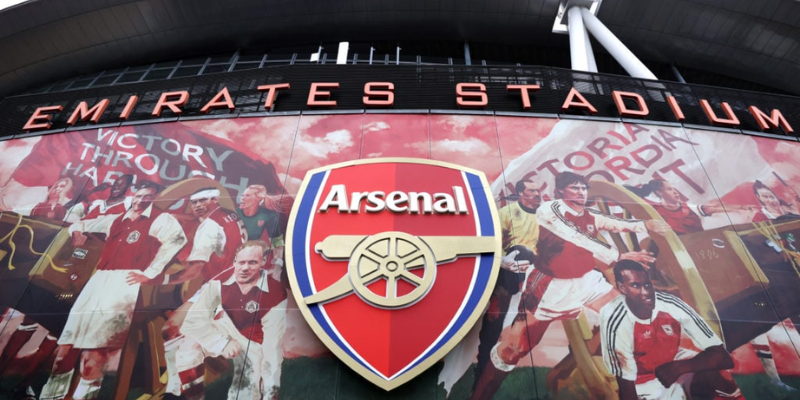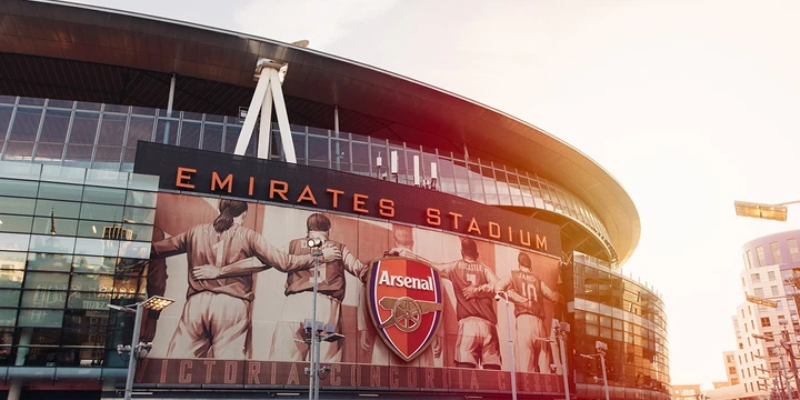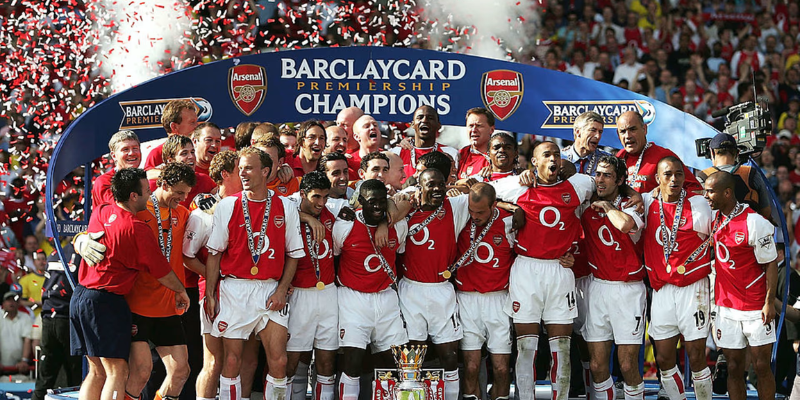From the smoky munitions workshops of south-east London to one of the world’s most iconic football clubs: the story of Arsenal’s birth is as dramatic as any match-day narrative. If you’ve ever wondered when was Arsenal founded, today MantaBall will take you deep into that moment in time, tracing the roots of the Gunners and exploring how a group of factory workers changed football history forever.
The birth of Dial Square: 11 December 1886

Arsenal’s formal origin is tied to a crisp December evening in 1886. On 11 December 1886, a contingent of munitions workers at the Royal Arsenal armament factory in Woolwich gathered under the name Dial Square and took to the field for their first match — a resounding 6–0 victory against Eastern Wanderers. This match is often cited as the founding moment of Arsenal, marking both their first appearance as a club and the official birthdate many historians embrace.
These men weren’t professional footballers — they were engineers, machinists, laborers — united by a love for the game. One of their prominent founders, Scotsman David Danskin, and fellow workers like Fred Beardsley and Elijah Watkins played pivotal roles in assembling their first squad. Their modest contributions—sixpence from each member—helped formalize this impromptu team. Over the ensuing weeks, the club adopted the name Royal Arsenal and began entering local competitions, laying the groundwork for future growth.
Evolution of the name and professional status

The road. Below are the key transformations in Arsenal’s identity:
- 1886 – Dial Square: The original name, referencing the workshop within the Royal Arsenal complex.
- Late 1886 / early 1887 – Royal Arsenal: A name adopted soon after the first matches, signaling broader ambition.
- 1891: The club turned professional, a bold step given London’s amateur football culture of that era.
- 1893: On formally becoming a limited liability company and joining the Football League, the name Woolwich Arsenal was adopted.
- 1913: The club relocated to north London (Highbury), beginning a slow shift in identity away.
- 1920s onward: “The” was dropped, and the club’s name solidified as Arsenal.
By the time Arsenal entered the First Division, the identity evolution was nearly complete — from a workers’ team in Woolwich to a London heavyweight with a distinctive name and growing fanbase.
Arsenal’s early years and first successes

In those initial decades, Arsenal punched far above its weight. Some highlights:
- Kent Senior Cup, London Senior Cup: Among the early regional trophies won in the 1890s.
- First national honours in the 1930s: Under manager Herbert Chapman, Arsenal claimed multiple League titles and FA Cups, propelling them onto the national stage.
- Unbroken top-flight status: Since rejoining the First Division in the early 1900s, Arsenal has never been relegated from England’s top flight.
- The Invincibles: In 2003–04, Arsenal went a full Premier League season unbeaten — a feat unmatched in the 38-game era.
These early achievements cemented Arsenal’s status among England’s elite and elevated the club far beyond its humble industrial beginnings.
Why when was Arsenal founded still matters
Asking when was Arsenal founded is more than just trivia — it carries deeper significance for fans and historians:
- Historical identity: The date roots the club in a specific social and industrial context — the working class, munitions factories, the late 19th century.
- Anniversaries & celebrations: Arsenal’s centenary (1986) and 125th anniversary (2011) were major events in club history, marked by special kits, publications, and ceremonies.
- Connection to heritage: For generations of supporters, knowing the origin gives emotional weight — this isn’t just a club, it’s a legacy born.
Other clubs founded around the same time — a snapshot
To put Arsenal’s 1886 founding into perspective, here’s how it fits into the broader landscape of English clubs:
| Club | Year Founded |
| Sunderland | 1879 |
| Everton | 1878 |
| Aston Villa | 1874 |
| Blackburn Rovers | 1875 |
| Manchester United (Newton Heath) | 1878 |
| Chelsea | 1905 |
| Tottenham Hotspur | 1882 |
Although Arsenal came after some of the earliest clubs, its founding in 1886 places it among the older, time-honored institutions in English football.
Legacy of that founding moment, the club’s trajectory reflects transformation, ambition, and adaptation. That tiny workshop team evolved into a club that:
- Won domestic and European honors
- Built one of football’s most recognizable brands
- Maintained top-flight status for decades
- Inspired fandom across the globe
Yet, the memory of that December day in 1886 remains alive in banners, documentaries, and fan lore — a reminder that every giant started somewhere.
Final Thoughts
When was Arsenal founded? The short answer: 11 December 1886, under the name Dial Square. But that date signifies more than an origin point — it’s the seed. MantaBall hopes this journey into Arsenal’s roots deepened your appreciation for the Gunners’ history. Next time you follow a match, check stats, or debate players, return here for crisp, engaging insight — because understanding where a club came from helps make sense of where it’s going.






